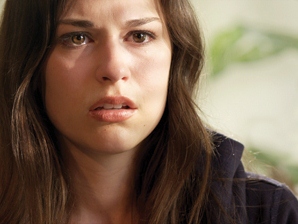Jon Erwin is the co-writer and co-director of the new film “October Baby.”
I love movies. New ones. Old ones. Particularly movies about redemption–the kind wheresomeone lays it down for a cause or a person or a truth bigger than he or she is.
A film’sastonishing power is that it can connect an audience with a story’s truth and essence. And rightthere, change is born.
My brother, Andy, and I recently wrote and directed “October Baby,” in theaters on Friday, after learning that thousands of people in the U.S. are survivors of abortion attempts. Not anobvious topic, but the first time I heard a survivor’s story in person, I was shattered. I listenedas a beautiful woman with physical complications from the abortion attempt (which afflict manysurvivors) told her audience what it means to be torn from the womb and wage a lonely fight tolive.
Ironically, the speaker who inspired “October Baby,” Gianna Jessen, is one of many survivorsspeaking out; and few people know this unlikely population exists. Enter moviemaking:the chance to turn advocacy from a political assault into one person’s honest andcompelling story.
“October Baby” is the engaging story of Hannah, a 19-year-old college student who learns she’sadopted and the survivor of a failed abortion. The news sends Hannah on a road trip, herodyssey, to find answers and to find her birth mother.
Ultimately the search takes her to herself,and to the power of forgiveness.Advance screenings of “October Baby” have touched a tender nerve. Women and men alike,many with their own abortion-related secrets, see the movie and say it helps them believe thatGod wants to heal and forgive them. And they start to bring their own secrets to light.
One striking case is one of the film’s own cast members, Shari Rigby, who plays Hannah’s birthmother. Eerily like her character in “October Baby,” Shari had an abortion as a young woman andtold almost no one. Twenty years later, reading the script, she came to the scene where the truthcatches up with her. After she read it, she called in tears and said, “How did you know?” Notbecause of us but because of the freedom of shedding her secret, she’s gone public with herstory. You can see it on the movie website or in theaters as “October Baby” movie credits run.
As Andy and I wrote and shot “October Baby,” all of us associated with the film wanted to do more.The movie’s tagline is “Every Life Is Beautiful,” and we were living it, seeing it. We formed theEvery Life Is Beautiful Fund to send 10 percent of film profits to frontline organizations helpingwomen face crisis pregnancies, to life-affirming adoption agencies, and to people caring fororphans. Call it an upward spiral of change.
As the film reaches men and women and teens – particularly teens – it spins off the resources to touch more people.So often we focus on politics and the lines that separate us. We distill the issues into thedifference between Republican and Democrat, religious versus non-religious, and so on.
Yet thearts are a tremendous way to reach beyond the barriers that divide and touch our hearts. A greatfilm doesn’t need to tell you what to think; it just needs to beg you to stop and think for yourself.And I believe when people truly stop and think about this critical subject, they will be better for it.
So, yes, movies can do more than entertain. Someone has said you can argue anissue, but you can’t argue a person’s story. That’s why I love film, and it’s why we made “OctoberBaby.”

COMMENTS
Please let us know if you're having issues with commenting.